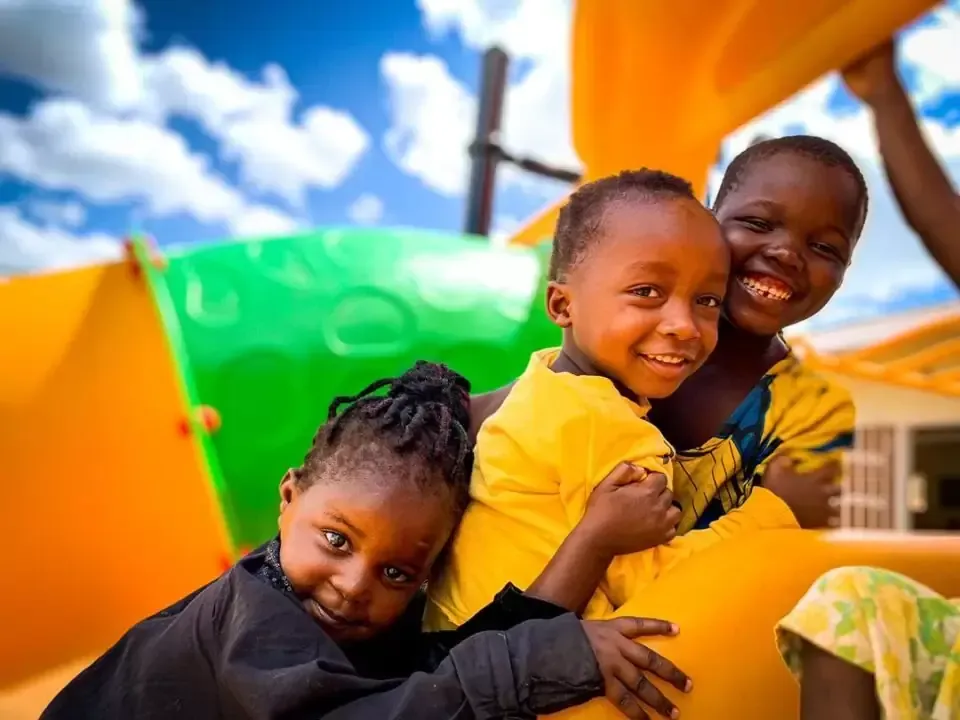Sarah’s trip to Malawi
Home is where the heart is and my heart happens to be in three locations – the UK, UAE and Malawi.

Due to Covid-19 and travel restrictions my journey to Malawi via Dubai in December 2020 ended up being cancelled, and with the UK imposing hotel quarantine on all international flights, I was left with no choice but to remain in Dubai until I could travel again.
In April 2021 I was finally given the green light. A year and a half of waiting to visit the kids, the staff, the volunteers, my neighbours, my friends… I was beyond excited.
Surprising everyone in Malawi was everything and more that I could have wished for. The look on the team’s faces, the tears, the cheers and of course the panic of ‘oh no the CEO is here’ were priceless.
It is difficult to put into words how proud I felt seeing the growth the organisation has gone through since I left. The change not only in the look of the site but also the feel. At times I actually felt like a visitor. Was it strange? Yes. But being an outsider of my own project means success. For charities to work effectively they must be community led. They must be run by locals and be driven by those who want to create brighter futures for Malawi. All the late nights, the tears, the failures, the times I truthfully felt like giving up, suddenly made sense and it was a pinch yourself moment when I realised what I had dreamt about, had finally come true.
Social media may paint the perfect picture of how things are in Malawi and for those people who have been over to Sparkle, they will be able to see the changes of the site and how far we have come – but just because Sparkle is shinier than before, does not mean the need in the village isn’t still greater than ever. Over the years the demographic in the surrounding villages has changed significantly. What was once a rural area is now semi-urban. There are gated houses, BMW’s on the dirt roads and even a double storey house! People have moved into the area due to proximity to Zomba, and for many these are second houses for those who live elsewhere and want a holiday home near the plateau. Zomba is renowned for its scenery and modest temperatures which make it an attractive place to buy.
So what does this mean for our beneficiaries?
Truthfully most of them are NOMADS. They don’t have homes; they often stay in buildings for free which are under construction which is not only dangerous from a security perspective, but also risky health wise as often there are no windows, doors or even roofs, increasing the chances of catching malaria. Their parents – if they have any, have travelled to the village in desperation of trying to pick up piece work from wealthy Malawians, and more often than not mothers are having to turn to prostitution to make ends meet. The impact on the child is huge, and the emotional and social challenges they face on a daily basis is heart breaking.
Sparkle has successfully implemented an education programme, a feeding programme and a health clinic which is brilliant – but long term as we don’t ever want to house the children permanently on our campus, it is now time to focus our efforts on the community and empowering the parents to be able to support their own families. This change doesn’t happen overnight and with Sparkle located in such a transient place, we never know how long we have our children and parents for, but either way we need your support more than ever to help us complete the last part of the puzzle. Every parent no matter where they are around the world want the best for their children. If we can give our communities the tools to be able to do this, we know what impact we can make long term and really create brighter futures for the families we support.
So what now?
I said in 2016 I wanted to have Sparkle sites all around Malawi and in another country. Did I really believe it? No. However we are now embarking on our three year strategy to replicate Sparkle in other areas of Malawi and by 2024 in a different part of Africa. I don’t know if we will meet the timelines but I do know we will make it happen. Where there is a will there is always a way and with our donors and volunteers around the world behind us, I know anything is possible.
Thank you and please keep spreading the Sparkle.
Together we can make a difference.







